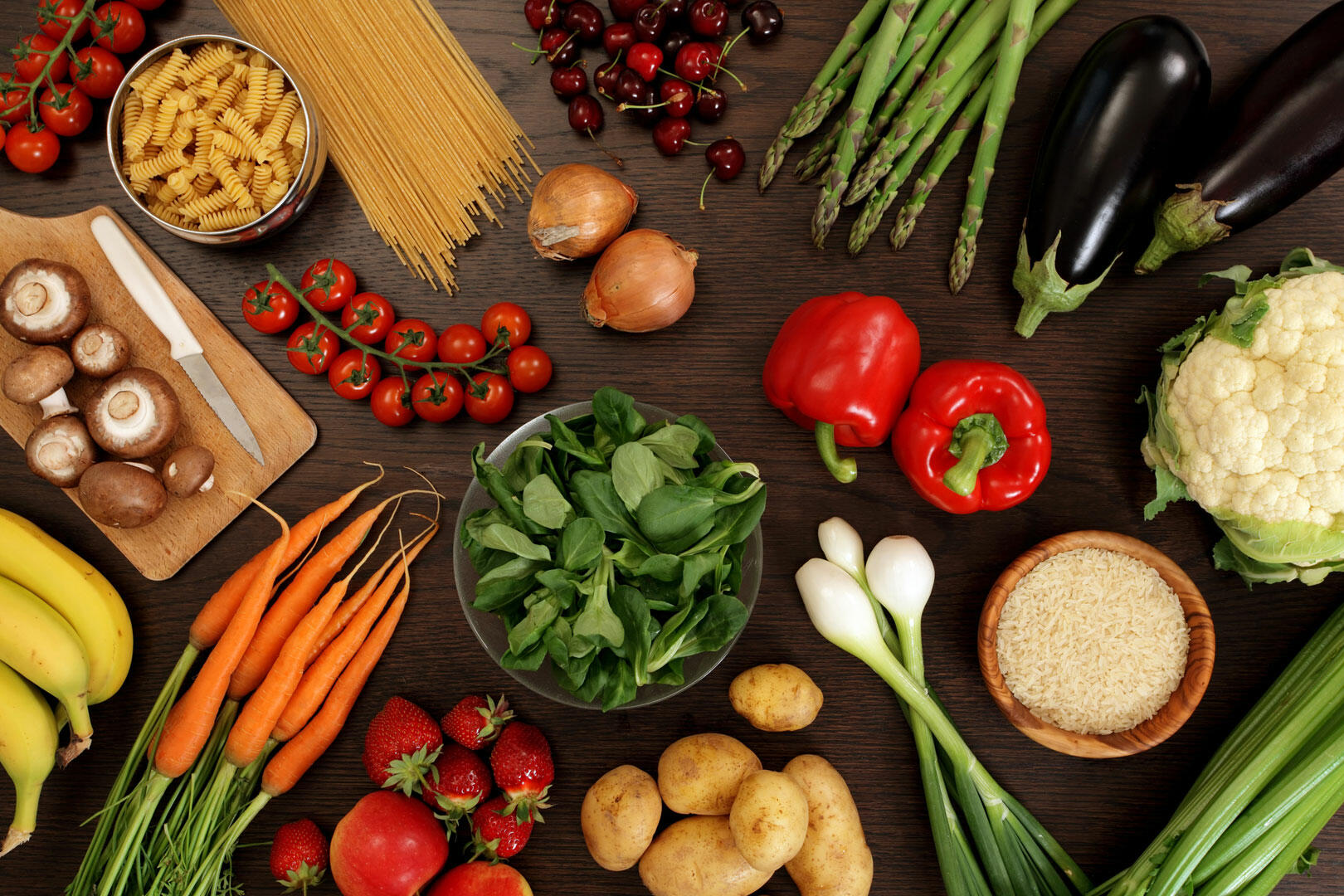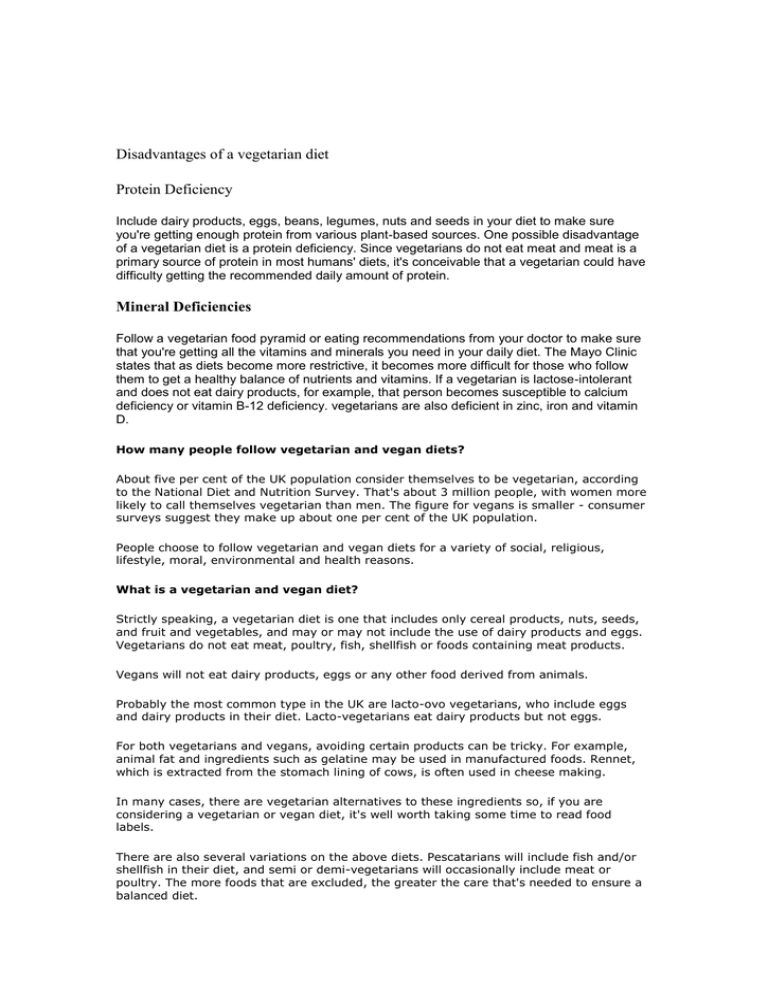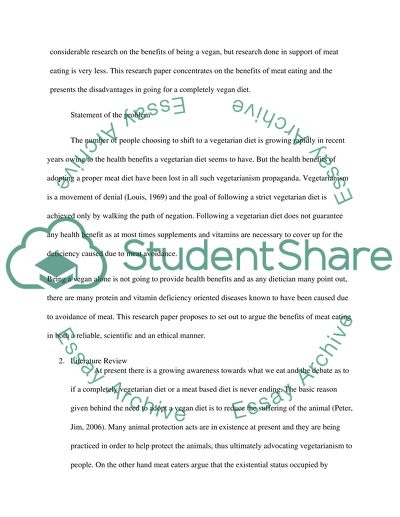Becoming a vegetarian can be a personal decision motivated by a variety of factors, such as ethical concerns about animal welfare, environmental sustainability, or health reasons. While vegetarianism can have some significant benefits, it is important to also consider the potential drawbacks and make an informed decision that is right for you.
One advantage of becoming a vegetarian is that it can be a way to improve your overall health. Vegetarian diets are typically rich in fruits, vegetables, and other plant-based foods, which are important sources of nutrients such as fiber, vitamins, and minerals. Some research suggests that vegetarian diets may be associated with a lower risk of certain health conditions, such as heart disease, type 2 diabetes, and certain types of cancer. However, it is important to ensure that a vegetarian diet is well-balanced and includes a variety of sources of protein and other nutrients to avoid potential deficiencies.
Another potential benefit of becoming a vegetarian is that it can be a way to reduce your environmental impact. The production of animal-based foods, especially meat, can be resource-intensive and contribute to greenhouse gas emissions, water use, and land degradation. By choosing plant-based foods instead, you can potentially reduce your carbon footprint and help to protect the environment.
However, there are also some potential disadvantages to becoming a vegetarian that should be considered. One concern is that vegetarian diets may be more expensive than diets that include meat. Plant-based foods can be pricier than animal-based options, especially if you are relying on specialty products or imported items. Additionally, vegetarian diets may require more planning and preparation to ensure that you are getting all of the nutrients you need. This can be especially challenging if you are following a vegetarian diet while eating out or traveling.
Another potential drawback of vegetarianism is that it may not be suitable for everyone. Some people may have difficulty meeting their nutrient needs on a vegetarian diet, especially if they have certain health conditions or are pregnant or breastfeeding. It is important to consult with a healthcare professional or a registered dietitian to determine if a vegetarian diet is right for you and to develop a plan that meets your nutritional needs.
In conclusion, becoming a vegetarian can have both advantages and disadvantages. While vegetarian diets may offer health and environmental benefits, they may also be more expensive and require more planning and preparation. It is important to carefully consider all of these factors and consult with a healthcare professional or registered dietitian before making the decision to adopt a vegetarian diet.
17 Advantages and Disadvantages of being a Vegetarian
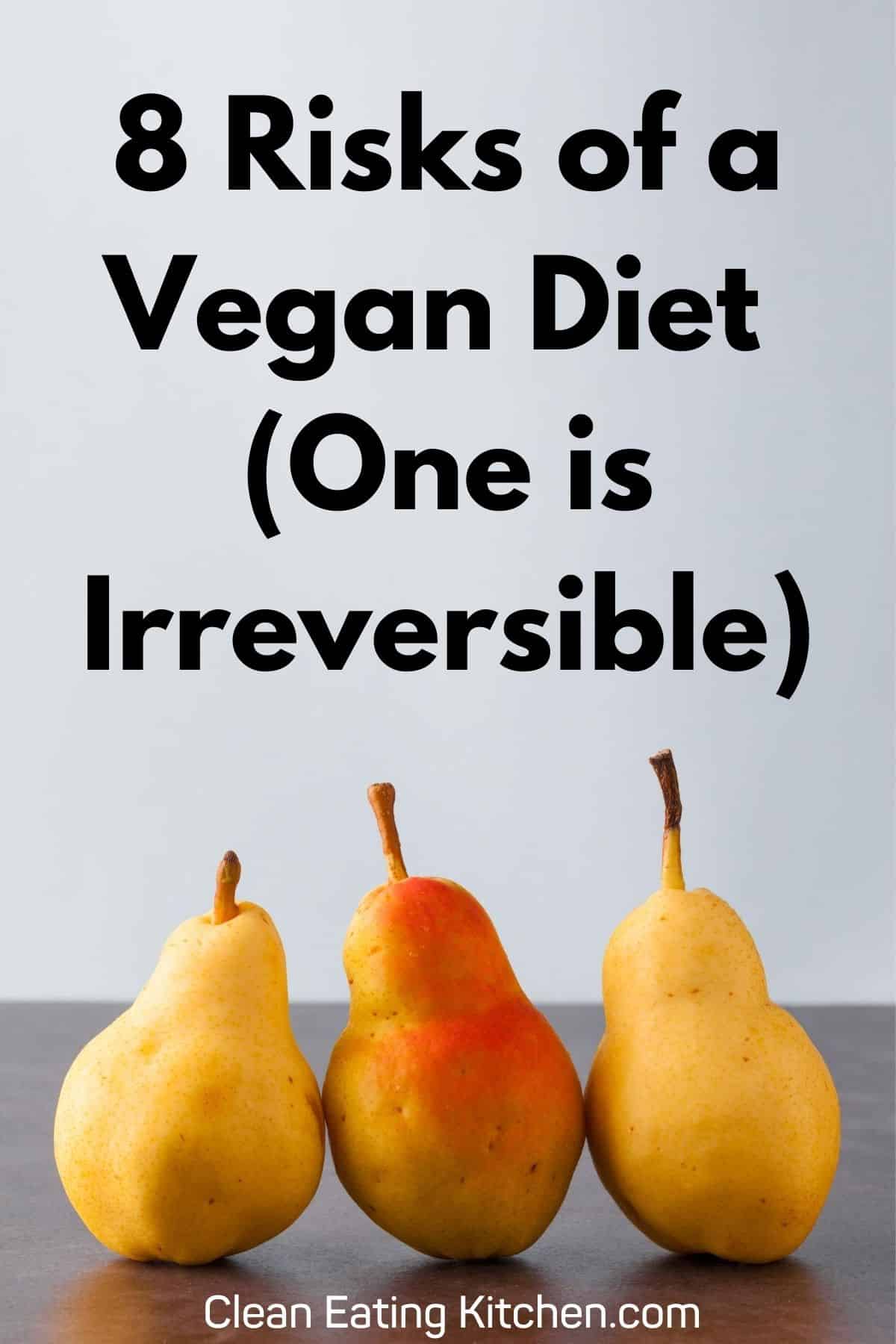
Vegetarian diet is not recommended for bodybuilders, as they require a protein-rich diet. If you properly plan your diet, you can overcome the problem of nutrient deficiencies and improve your physical fitness and overall health. Vegetarian diet typically consists of whole grains, vegetables and fruits. On the other hand, if you already have diabetes, you can help to control it naturally. Which sounds more like a good thing, but before you change your lifestyle to become a vegetarian, its best you consider the following prons and cons. You can be spontaneous and try different recipes. Trying to find a cure in medicine and not succeeding, well what if medicine is the wrong way to go when trying to find cures? People following this diet eat mostly plant-based foods but may occasionally include meat, dairy, eggs, poultry, and fish in small amounts.
Advantages and disadvantages of vegetarianism

Things like beans, nuts, and soy can all provide a vegetarian with the protein that they need to function. Vegetarian foods do not provide by themselves the necessary amount to make our body manage to maintain itself in the same way as it would with meats. Although, there are certain disadvantages of vegetarian diet, it definitely offers a number of health benefits. Well-balanced vegetarian diets are appropriate for all stages of the life cycle, including children, adolescents, pregnant and lactating women, the elderly and competitive athletes. Vegetarianism contrary to popular belief is the healthier life style choice and one that will not be regretted. A diet lacking in sufficient carbohydrates and proteins can lead to anemia. Vegetarian diets may provide these nutrients as long as food intake is planned properly, but supplementation is sometimes necessary.
Advantages and Disadvantages of a Vegetarian Diet

Carnivores eat meat, while vegetarians substitute that protein for something else. Well, there are certain advantages and disadvantages of being vegetarian. Nowadays, most people still cannot accept the concept of being a vegetarian as they have grown up in eating meat culture. . Some organizations working for the animal rights are strictly against eating meat, fish or poultry. Hence, it is rich in fiber, folate and vitamin C. Everyone has it in their mind that vegetarians are so much healthier than meat-eaters, but is it really true? What about in pregnancy and for children? Fruits, vegetables, whole grains, nuts and seeds are the core of a healthy, well-balanced vegetarian diet.
advantages &disadvantages of blog.sigma-systems.com
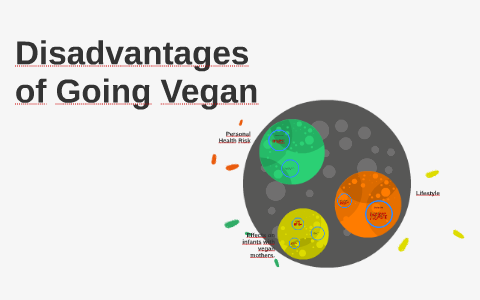
If you follow a vegan diet, it may be more difficult to find, and you may need to search for fortified foods or supplements. The nutrients of concern in the diet of vegetarians include vitamin B 12 , vitamin D, ω-3 fatty acids, calcium, iron, and zinc. You can taste the soup to know if more salt is needed. The following study found that following a vegetarian diet helps to avoid obesity and consequently reduce the risk of type 2 diabetes. Even with all of the advances in 21st century medicine and knowledge, we still have all these problems in the world Strumillo. Hence, it is rich in fiber, folate and vitamin C.



